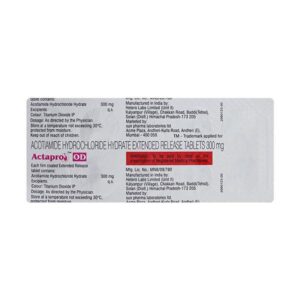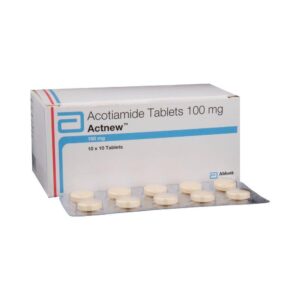ACOTIAMIDE
ACOTIAMIDE: ACOTIAMIDE is a drug that is used to treat functional dyspepsia, a condition characterized by chronic or recurrent pain or discomfort in the upper abdomen.
The mechanism of action of ACOTIAMIDE involves the inhibition of acetylcholinesterase, an enzyme that breaks down acetylcholine. By inhibiting this enzyme, ACOTIAMIDE increases the levels of acetylcholine, a neurotransmitter that helps regulate gastrointestinal motility and gastric emptying. This leads to the improvement of the symptoms associated with functional dyspepsia.
The recommended dose of ACOTIAMIDE for adults is 100 mg taken three times a day, preferably before meals. The duration of treatment can vary depending on the individual’s response to therapy, but it is typically prescribed for 4-8 weeks.
Common side effects of ACOTIAMIDE may include diarrhea, nausea, vomiting, abdominal pain, headache, and dizziness. These side effects are usually mild and transient. However, if any severe or persistent side effects occur, it is important to consult a healthcare professional.
It should be noted that ACOTIAMIDE is not recommended for use in pregnant or breastfeeding women, as the safety of the drug in these populations has not been established. Additionally, ACOTIAMIDE may interact with other medications, so it is important to inform your healthcare provider about all the medications you are taking before starting this treatment.





